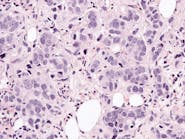Newborns who experience seizures after birth are at risk of developing long term chronic conditions, such as developmental delays, cerebral palsy or epilepsy, which is why all of these babies receive medication to treat the electrical brain disturbances right away.
“There is wide variability in how different hospitals and physicians manage care for newborns with seizures,” says senior author Renée Shellhaas, MD, MS, Pediatric Neurologist at University of Michigan C.S. Mott Children’s Hospital.
The study involved about 300 babies born at nine different centers over a three-year period who all developed seizures in their first days to weeks after birth. Two-thirds of babies stayed on medication after discharge from the hospital – averaging four months of treatment. But a third had antiseizure medicine discontinued before they went home – after just a few days of treatment.
Thirteen percent of babies developed epilepsy but there were no associations with medication duration.
Among the biggest concerns for longer term use of antiseizure medicine is that it may expose babies to potentially neurotoxic effects, which research indicates may be associated with lower cognitive scores.
The most commonly used medication for neonatal seizures is phenobarbital, which slows down brain activity but causes sedation. Newborns who are prescribed this kind of medication for seizures may also have more trouble waking up to feed and engaging in other types of activities important to growth and
Previous small, single-center studies have also suggested that early discontinuation of antiseizure medication isn’t harmful.
The researchers plan to continue to follow this cohort of infants up to school age to assess development, including sensory processing, IQ and potential learning disabilities through research supported by the National Institutes of Health.





